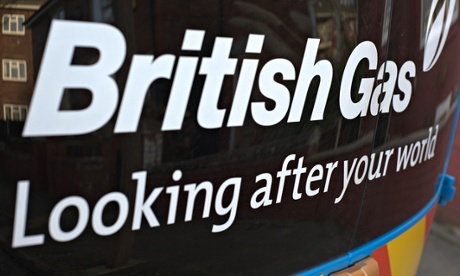British Gas is paying staff bonuses to inflate customers’ bills by up to 60 per cent, a whistleblower has claimed.
The former employee said he felt ‘disgusted’ by the policy, which encouraged staff to target charities and small businesses and sell them the most expensive deals possible.
Employees were told they could triple their £25,000 salary through commission if they sold the highest-priced tariffs to enough customers.
Churches and charities – including the Scouts – were among those targeted by the policy, the whistleblower said, with some organisations ending up £2,000 a year worse off.
Last night, energy regulator Ofgem said it would examine the evidence uncovered by the Mail and take ‘firm action’ if it found British Gas had not been ‘honest and transparent’ with its customers.
The former sales worker, who asked not to be named, said he witnessed sales agents on a ‘regular basis’ signing up churches and charities to long-term contracts at the maximum price in order to earn a higher salary.
Smaller businesses and charities tended to fall for the tactic because they had fewer resources to research the best deal, he said.
The whistleblower, who worked for British Gas between 2010 and 2013, said its policies had been engineered to ‘rip off’ customers – and he believed the practice was continuing today. His revelations come just days after the company was fined £5.6 million for blocking business customers from switching suppliers.
‘People were desperate to make the salaries they had been promised, so everyone inflated the prices,’ he said.
‘Scouts was a favourite one; churches, charities, small businesses, where people would just go for the maximum 5p notch-up,’ he added.
By switching to the most expensive deal, a company’s bill could increase by more than £2,000 a year.
‘For a small business, that kind of price increase could be enough to finish you off,’ he said.
A sales representative would normally make between £4 and £37 in commission per deal if they managed to persuade existing customers to renew contracts or add more properties to their accounts.
But if they managed to move the customer to a more expensive deal – known as ‘notching up’ – they could earn more than £400 a time.
The ex-sales agent said most employees felt guilty notching up bills, but others thrived on it – and made up to £80,000 a year.
‘Some people were quite proud about notching up the unit rates,’ he said. ‘I felt guilty. I didn’t do it that often. But there were plenty of people there who had no guilt whatsoever.
‘They were doing it for the big bucks because they were greedy.’
The former employee said the words ‘Volume to value’ were painted on the walls of the company’s call centre in Leicester to encourage staff to target customers worth more to the business – in other words paying more, or higher, bills – rather than seeking a greater number of customers.
The whistleblower’s own method of ‘cheating the system’ was to notch up customers who had empty buildings.
These customers wanted the cheapest standing charge and weren’t affected by notched-up unit rates because they used very little energy.
He said: ‘That meant I got the commission, but the customer didn’t actually pay more.
‘The company had a lot of people off with stress on the sales floor, and it was partly linked to sales targets but partly linked to what you had to do to make your money.’
The whistleblower said the former managing director of British Gas, Phil Bentley, was made aware of the practice by staff. But he suggested customers would eventually benefit from rip-off deals because their rates were fixed and energy prices would get even higher still over time.
No action has been taken to change the commission structures.
And we all know what Ofgem will do about this?



